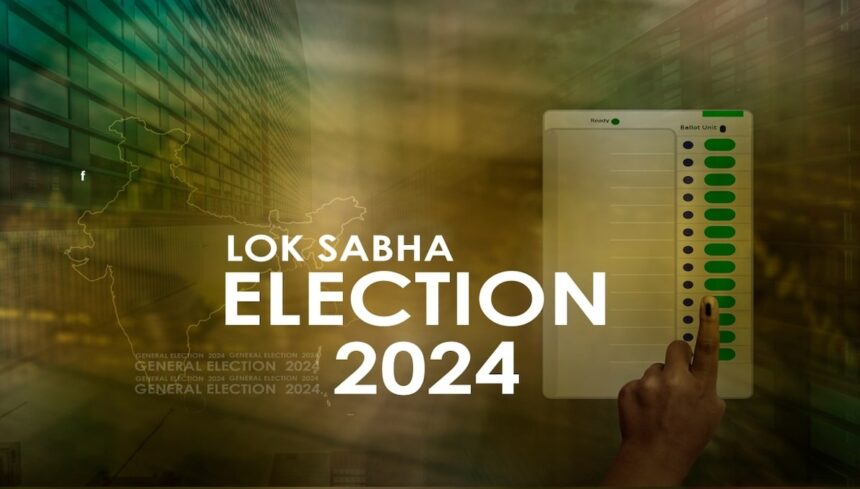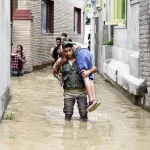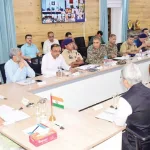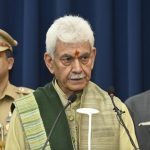The power to vote is an important part of a democratic country like India. While many are eligible to cast vote, few are enthusiastic about it. In the 2019 Lok Sabha elections, the voter turnout was 67.11% which is the highest turnout in the history of India. With every election, there has been a positive increase in voter turnout. Such an increase in voting is a positive welcome, as each and every vote counts for a better future of our country.
The right to vote is a fundamental right in any democratic society. It is the cornerstone of our democracy, allowing citizens to have a say in who governs them and how they are governed. The ability to vote is not only a right, but a responsibility, as it ensures that the voices of all citizens are heard and that their interests are represented in the government.
The right to vote is not just a privilege, but a basic human right. It is protected by the Universal Declaration of Human Rights (1948) and the International Covenant on Civil and Political Rights (1966). In many countries, the right to vote is also protected by national constitutions.
The right to vote in the Constitution of India is guaranteed under Article 326. This article states that “the elections to the House of the People and to the Legislative Assembly of every State shall be on the basis of adult suffrage; that is to say, every person who is a citizen of India and who is not less than 18 years of age on such date as may be fixed in that behalf by or under any law made by the appropriate Legislature and is not otherwise disqualified under this Constitution or any law made by the appropriate Legislature on the ground of non-residence, unsoundness of mind, crime or corrupt or illegal practices, shall be entitled to be registered as a voter at any such election.”
In Ancient Greece, the right to vote was generally limited to adult male citizens. Women, slaves, and non-citizens were not considered citizens and therefore did not have the right to vote. The exact method of voting varied by city-state, but in most cases, voting was done through a show of hands or by casting a small stone or disc into a designated container.
In Athens, the most famous ancient Greek city-state, voting was done by a system called sortition, where citizens were randomly selected to serve as government officials and to vote on laws. However, this system was only for the wealthy class citizens.
In United States, the right to vote was initially limited to white, male property owners. Over time, the right to vote has been expanded to include more groups of people, such as women and minorities. It wasn’t until the 15th Amendment was ratified in 1870 that black men were granted the right to vote. However, it wasn’t until the Voting Rights Act of 1965 that voting discrimination against minorities was effectively banned. Women, however, were not granted the right to vote until the 19th Amendment was ratified in 1920.
In United Kingdom, the right to vote has been gradually expanded over time. The Great Reform Act of 1832 extended the right to vote to more men, but it wasn’t until 1918 that all men over 21 were granted the right to vote. Women over 30 were granted the right to vote in 1918, and in 1928 the voting age for women was lowered to match that of men.
In France, the right to vote was initially limited to property-owning men. It wasn’t until 1848, with the establishment of the Second Republic, that all men over 21 were granted the right to vote. Women were not granted the right to vote until 1944.
In India, the right to vote was granted to all citizens over the age of 21 by the Constitution of India in 1950. However, prior to that, the Indian National Congress had been fighting for voting rights for Indians since the early 1900s. India has a long history of political mobilization and resistance movements that finally led to the Indian Independence in 1947 and the right to vote for all citizens.
The right to vote has been a hard-won right for many citizens around the world, and the history of voting rights is often closely tied to the broader struggle for political and social equality. Today, many countries continue to work towards expanding voting rights and ensuring that all citizens have an equal say in the political process.
Despite these advances, the right to vote is still not universally guaranteed. Many countries around the world still deny certain groups of people the right to vote, either through laws or through discrimination and intimidation. This is unacceptable, and efforts must be made to ensure that all citizens have the right to vote and that their votes are counted fairly.
Another way to ensure the right to vote is through education. Citizens need to be informed about the candidates and issues on the ballot, as well as their rights as voters. This is especially important for young people, who are often the least likely to vote.
The right to vote is a basic human right that is essential for the functioning of a democratic society. It is the foundation of our democracy and must be protected and expanded for all citizens. Every vote counts and every citizen deserves the right to vote.
Voting rights for NRIs were introduced only in 2011, through an amendment to the Representation of the People Act 1950. Non-Resident Indians (NRIs) are Indian citizens who live outside of India and are not considered to be residents of India for tax purposes.
The importance of voting is highlighted by Abraham Lincoln’s philosophy of democracy, which states that democracy is a government of the people, by the people, and for the people. Through voting, people can have a sense of ownership over their government and bring about change. Voting also allows individuals to express their thoughts on a country, local constituency, or candidate.
The National Voters’ Day serves to educate new voters on the importance of their vote and responsibility to participate in elections. The Election Commission of India also prioritizes accessibility for disadvantaged groups and has implemented Model Polling Booths to cater to women, children, and older individuals.
The Systematic Voter’s Education and Electoral Participation program aims to fill gaps in voter participation. Additionally, the Indian Election System has been made more flexible, including the introduction of VVPAT machines for transparency and the decriminalization of elections through the declaration of criminal records by candidates.
India’s democratic underpinnings are based on election results. Our legislatures and parliaments are elected by, for, and for the people. We are fortunate to have the constitutional right to vote. We take it for granted, but the constitution guarantees us the right to vote for whom we want and to change our minds.
Every vote counts. Though it seems like an endless sea of people are there to vote, every vote counts. When the national attitude changes from thinking “my vote doesn’t make a difference”, then the numbers increase and a multitude of people voting will make the difference. The responsibility lies on every individual.
(The author is a freelance columnist and can be mailed at [email protected])








